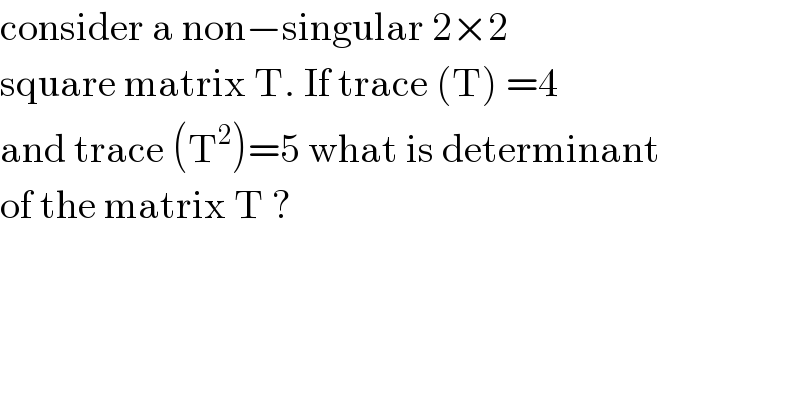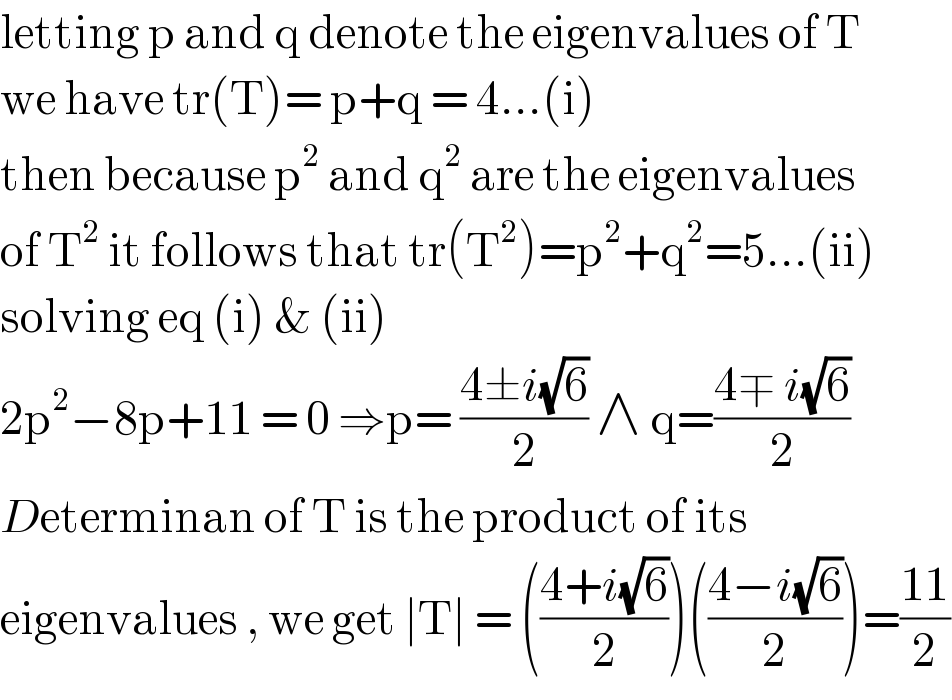
Question and Answers Forum
Previous in Matrices and Determinants Next in Matrices and Determinants
Question Number 117973 by bemath last updated on 14/Oct/20

Answered by bobhans last updated on 14/Oct/20

| ||
Question and Answers Forum | ||
Previous in Matrices and Determinants Next in Matrices and Determinants | ||
Question Number 117973 by bemath last updated on 14/Oct/20 | ||
 | ||
Answered by bobhans last updated on 14/Oct/20 | ||
 | ||
| ||